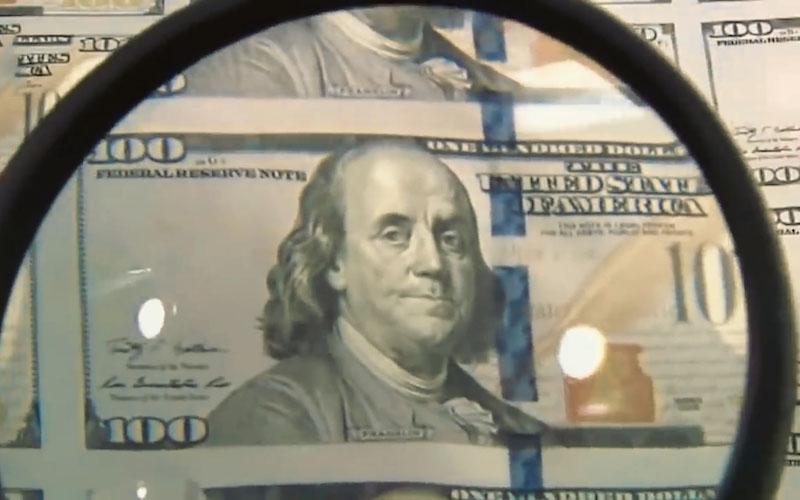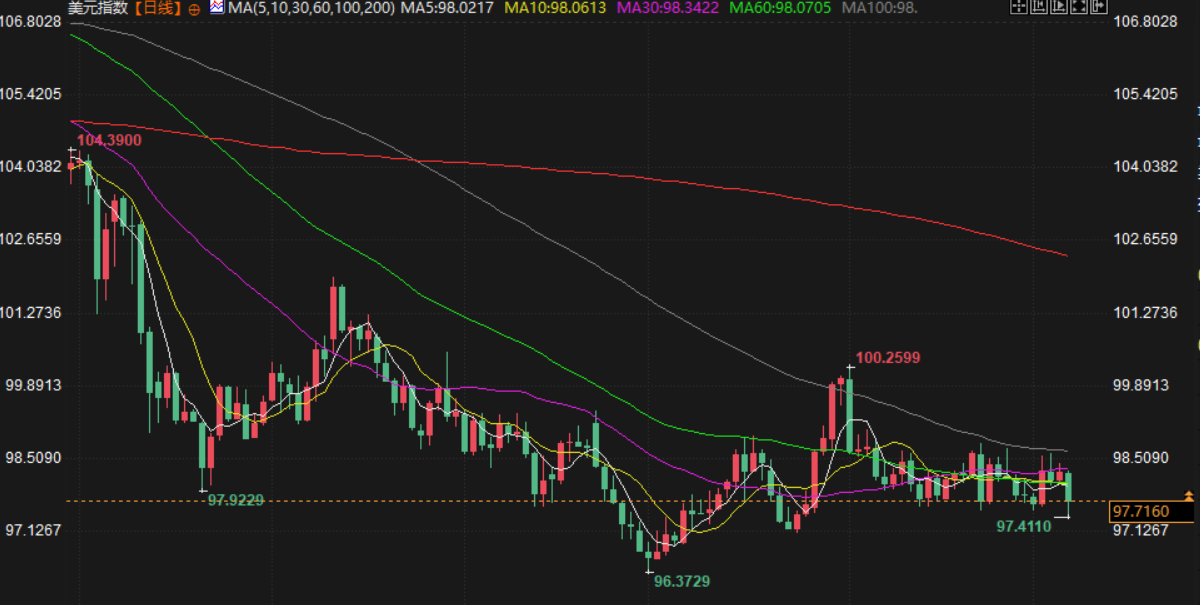Non-farm payroll data fuels interest rate cut expectations, sending the US dollar plummeting. Euro and pound sterling's upward trajectory depends on European political dynamics.
2025-09-06 07:47:50

The Labor Department reported nonfarm payrolls increased by just 22,000 jobs last month, well below the 75,000 expected by economists polled by Reuters.
Following the report, the U.S. dollar index fell 0.48% to 97.767, down 0.23% for the week. USD/JPY fell 0.70% to 147.44, still posting its second consecutive weekly gain. USD/CHF fell 0.91% to 0.79830, marking its fourth consecutive weekly decline.
Juan Perez, head of trading at Monex USA in Washington, said the data confirms concerns that companies have been going through this year because of changes in trade policy, with tariffs adding costs, that those costs can only be absorbed for so long, and the manifestation now is that companies are struggling to hire.
The euro was trading at $1.171675, up 0.55% and on track for a weekly gain against the dollar. “This is definitely not a good story for the dollar, it’s not a good story for the U.S. because what is really clear is that we are experiencing very severe stagflation,” Perez added.
U.S. Treasury yields fell. The interest rate-sensitive two-year Treasury yield fell 8.1 basis points to 3.511%. The benchmark 10-year Treasury yield fell 8.8 basis points to 4.088%.
Wall Street's major indexes, including the S&P 500, Nasdaq and Dow Jones, reversed early gains and fell across the board.
Traders now see a 10% chance of a 50 basis point rate cut at the Fed's next meeting later this month, while the probability of a 25 basis point reduction is nearly 90%, according to the CME's FedWatch tool.
Marc Chandler, chief market strategist at Bannockburn Global Forex, said the pendulum has swung very much in favor of a Fed rate cut, with even the market pricing in a 10% probability of a 50 basis point cut. "A 50 basis point cut would make people think they made a mistake not to cut earlier, and I don't think they're willing to admit that. A 25 basis point cut would be prudent, and I think the Fed is being cautious."
US President Trump said on Friday that he is considering White House National Economic Council Director Hassett for other positions. Trump said he has a rough idea of who he will choose for Federal Reserve Chair, and that Hassett is one of three possible candidates. However, he refused to confirm that Hassett would be his choice. Trump said Treasury Secretary Benson was the fourth choice for Fed Chair, and that the number now remains at three. Warsh and Waller are other potential candidates.
Analyst Audrey Childe stated that the August jobs report provided another boost to dollar bears. This report not only confirms the Federal Reserve's prediction of a 25 basis point rate cut in September but also likely fuels speculation of more aggressive easing measures in the future. This confirms our view that the euro will rise against the dollar in the fourth quarter, driven by US yields. Currently, a break above 1.1750 is imminent. While it's important to note that the euro's own environment is far from optimistic—particularly regarding the political situation in France—for now, we expect the currency pair's movements to be primarily driven by US factors.
French Prime Minister Émile Beirut has called for a vote of confidence in parliament, a move aimed at pushing through an unpopular 2026 budget that includes the cuts of two public holidays. However, this gamble appears unlikely to succeed, as the main opposition party has already stated it will vote against it. If Beirut loses the confidence vote, its government will face collapse.
Political science professor Kevin Asino said the government is likely to lose the vote if the opposition remains unchanged. Even if the Beirut government collapses, French President Emmanuel Macron has ruled out calling early elections. He may need to appoint a new prime minister, but finding one who can command a parliamentary majority to pass a budget will be extremely difficult.
France currently faces a serious challenge: national debt has reached 113.9% of GDP, and last year's deficit was nearly double the EU's 3% ceiling. There is a lack of consensus on how to reduce this debt. The core of this confidence vote is an attempt to force the opposition into negotiations, but the ultimate outcome remains unclear.
Asino predicts that the deadlock will be difficult to resolve quickly after the vote. The ideal scenario would be to have a new prime minister and quickly form a government that can pass a budget and satisfy financial investors, but this will be a race against time and the process is full of uncertainty.
Sterling rose against a weak dollar on Friday after Deputy Prime Minister Rayner resigned after admitting to underpaying property tax on new homes, dealing a new blow to her boss, Prime Minister Starmer.
Sterling rose 0.51% to $1.35055, up 0.02% for the week. The pound has been in focus this week after UK government bonds tumbled amid a sell-off as focus shifted to rising debt levels in major economies.
Britain is due to announce its next budget on November 26, and Chancellor of the Exchequer Reeves is under pressure to keep the government's finances on track.
Ruth Gregory, deputy chief UK economist at Capital Economics, said in a report that many of the conditions that led to fiscal crises in the past are now in place in the UK, but this does not mean that a fiscal crisis in the UK is imminent or inevitable.
"The lack of a trigger," she wrote, "is a significant factor. If a fiscal crisis does emerge in the UK, it could stem from economic data or policies as much as from changes in perceptions or personnel, highlighting the need for the government to continue to maintain fiscal discipline to keep bond markets functioning."
Official data released on Friday showed that UK retail sales rose 0.6% in July from the previous month, exceeding expectations and increasing 1.1% year-on-year. Economists polled by Reuters had forecast a 0.2% month-on-month increase and a 1.3% year-on-year increase.
Francesco Pesole said that although the month-on-month figure was higher than expected, last month's data was revised downward, so the impact on the market was limited and it was not the focus of the market.
"The market is very focused on the inflation rate to gauge whether the Bank of England thinks inflation is actually a bit high and needs to continue cutting rates at the same pace," Pesole said.
Money markets see a 98% chance of a 25 basis point rate cut by the Bank of England at its September meeting.

- Risk Warning and Disclaimer
- The market involves risk, and trading may not be suitable for all investors. This article is for reference only and does not constitute personal investment advice, nor does it take into account certain users’ specific investment objectives, financial situation, or other needs. Any investment decisions made based on this information are at your own risk.





















